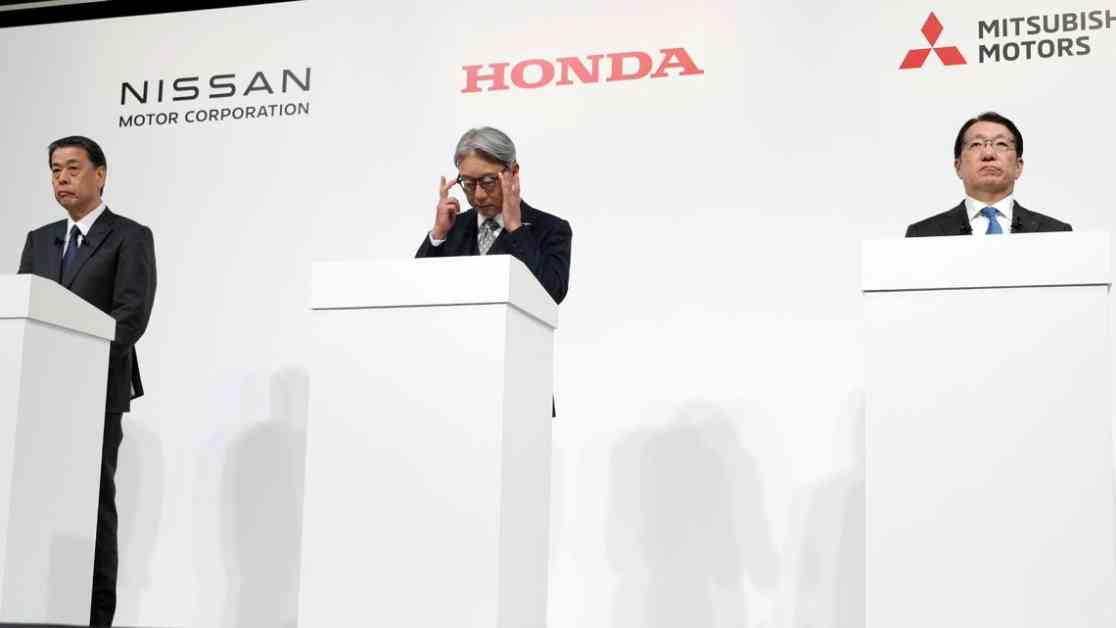Nissan and Honda Set to Merge, Creating Third-Largest Automaker in the World
TOKYO, Japan – In a groundbreaking move, Japanese automakers Honda and Nissan have unveiled plans to merge, propelling them to become the world’s third-largest automaker in the midst of fierce competition from Chinese rivals and the electric car giant, Tesla. The merger comes at a critical time as the automotive industry navigates a transformative shift away from traditional fossil fuels.
Honda’s president, Toshihiro Mibe, announced that the two companies have inked a memorandum of understanding to commence discussions on combining their operations under a joint holding company. The integration would also include the participation of smaller Nissan ally, Mitsubishi Motors. The overarching goal is to finalize a merger agreement by June, with the holding company slated to be listed on the Tokyo Stock Exchange by August 2026.
Challenges and Opportunities
Both Honda and Nissan have faced challenges in keeping pace with their competitors in the electric vehicle sector, prompting the need for cost-cutting measures and accelerated innovation. A potential merger would create a powerhouse worth over $50 billion, enabling the trio to better compete with industry giants like Toyota Motor Corp. and Volkswagen AG.
The merger discussions were partly fueled by reports of Taiwan’s Foxconn expressing interest in investing in Nissan, though no formal talks have been initiated. Despite the potential benefits, there are still significant hurdles to overcome, with Mibe acknowledging that the merger’s success is not guaranteed.
Industry Trends and Financial Impact
The proposed merger reflects a broader trend within the automotive sector towards consolidation, as companies seek to enhance their competitiveness amid evolving market dynamics. Fitch Ratings recently downgraded Nissan’s credit outlook due to declining profitability, driven in part by price reductions in the North American market. However, the company maintains a robust financial position with substantial cash reserves.
Nissan’s shares experienced a resurgence following news of the potential merger, with a notable 1.6% increase in Tokyo-traded stocks. Similarly, Honda’s shares surged by 3.8%, signaling investor optimism about the merger’s prospects for enhancing shareholder value.
Government Response and Future Outlook
Japanese Cabinet Secretary Yoshimasa Hayashi refrained from commenting on the specifics of the automakers’ merger plans but emphasized the importance of Japanese companies remaining competitive in the rapidly evolving global market. As the automotive landscape continues to evolve, industry stakeholders anticipate that strategic measures will be necessary to navigate intensifying international competition and shifting consumer preferences.
The impending merger between Honda and Nissan represents a pivotal moment in the automotive industry, signaling a new era of collaboration and innovation that could reshape the competitive landscape of the global auto market. As the two automotive giants embark on this transformative journey, the world watches with bated breath to see the impact of their union on the future of mobility and innovation.









